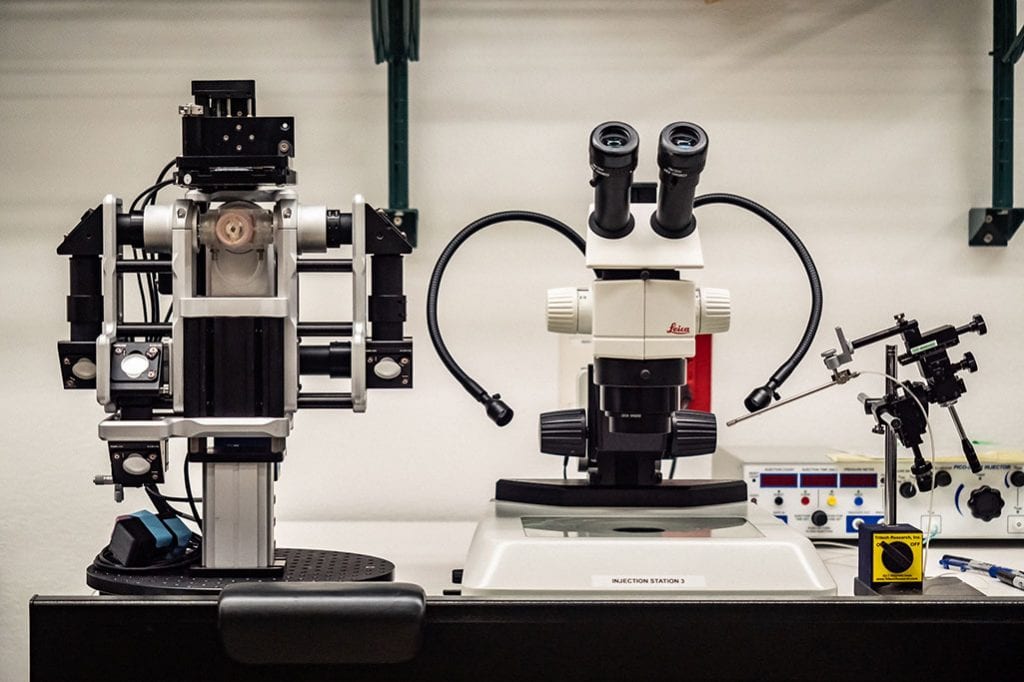Making powerful microscopy portable and affordable
It’s time to rethink how we use microscopes.

Over the centuries, these amazing instruments have become highly complex, delicate and nearly impossible to transport. Biology must come to the microscope, not the other way around. This presents challenges for biologists who would like to investigate fragile specimens at the source, from locations such as rivers, volcanos, or deep forests back to the lab.
Enter Flamingo, a creation from the lab of Morgridge medical engineering investigator Jan Huisken. Designed as a portable, shareable light sheet microscope, Flamingo essentially shrinks a tabletop-sized technology down to the weight and dimensions of a suitcase. The project can be mailed to a lab anywhere in the world, configured remotely by Morgridge engineers, and run one to three months of experiments.
Huisken is co-founder of light sheet microscopy, which uses a thin laser light sheet to selectively illuminates samples in 3D, giving scientists the ability to image samples over hours or days from every angle. This generates a tremendous amount of data quickly and gives researchers a view of embryonic development without harming the specimen. Flamingo brings this technology in a compact frame.
Ultimately, Huisken hopes to make access to this expensive technology, now limited to a few hundred labs worldwide, easy for any scientist or teacher with a great idea.
The project is supported by Morgridge and the Chan Zuckerberg Initiative.
Related Stories
- Rising Sparks: Joe Li, biomedical imaging - January 17th, 2024
- Making microscopy portable and affordable - May 25th, 2021
- An order of microscopy, to go - May 24th, 2019
- Have microscope, will travel: New tech project links Madison, Boston scientists - March 19th, 2019
- Imaging the zebrafish, one cell at a time - October 2nd, 2018